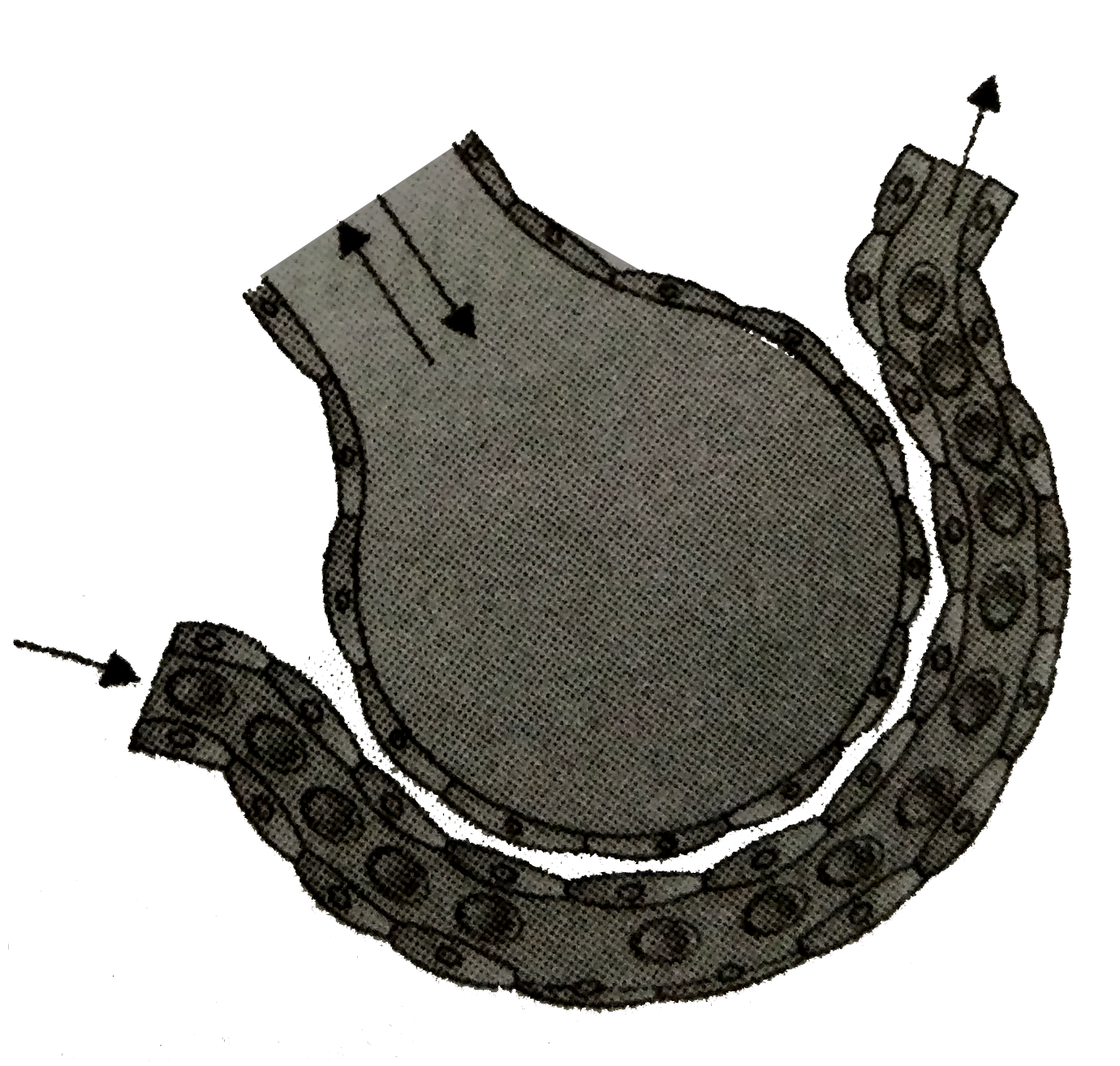What kind of parameter(s) effect(s) the rate of diffusion
The correct Answer is:i=concentration gradient,
ii-membrane permeability
iii-temperature
iv-pressure
To answer the question about the parameters that affect the rate of diffusion, we can break down the explanation into clear steps:
1. Understanding Diffusion:
- Diffusion is the movement of substances, particularly gases, from an area of higher concentration to an area of lower concentration. This process is crucial for cellular transport in both plants and animals.
2. Concentration Gradient:
- The concentration gradient is the difference in concentration between two areas. The rate of diffusion is directly proportional to the concentration gradient. This means that a steeper gradient (greater difference in concentration) will result in a faster rate of diffusion.
3. Membrane Permeability:
- Membrane permeability refers to how easily substances can pass through a membrane. The rate of diffusion increases with higher membrane permeability. Thus, if a membrane allows more substances to pass through, diffusion will occur more rapidly.
4. Temperature:
- Temperature affects the kinetic energy of molecules. As temperature increases, the molecules move faster, which increases the rate of diffusion. Therefore, higher temperatures generally lead to a higher rate of diffusion.
5. Pressure:
- Pressure plays a role in the diffusion of gases. Gases diffuse from areas of higher partial pressure to areas of lower partial pressure. Therefore, an increase in pressure can enhance the rate of diffusion for gases.
Summary of Parameters Affecting Diffusion:
- Concentration Gradient: Directly proportional to the rate of diffusion.
- Membrane Permeability: Directly proportional to the rate of diffusion.
- Temperature: Higher temperatures increase the rate of diffusion.
- Pressure: Higher pressure can increase the rate of diffusion for gases.
- Diffusion is the movement of substances, particularly gases, from an area of higher concentration to an area of lower concentration. This process is crucial for cellular transport in both plants and animals.
- The concentration gradient is the difference in concentration between two areas. The rate of diffusion is directly proportional to the concentration gradient. This means that a steeper gradient (greater difference in concentration) will result in a faster rate of diffusion.
- Membrane permeability refers to how easily substances can pass through a membrane. The rate of diffusion increases with higher membrane permeability. Thus, if a membrane allows more substances to pass through, diffusion will occur more rapidly.
- Temperature affects the kinetic energy of molecules. As temperature increases, the molecules move faster, which increases the rate of diffusion. Therefore, higher temperatures generally lead to a higher rate of diffusion.
- Pressure plays a role in the diffusion of gases. Gases diffuse from areas of higher partial pressure to areas of lower partial pressure. Therefore, an increase in pressure can enhance the rate of diffusion for gases.
- Concentration Gradient: Directly proportional to the rate of diffusion.
- Membrane Permeability: Directly proportional to the rate of diffusion.
- Temperature: Higher temperatures increase the rate of diffusion.
- Pressure: Higher pressure can increase the rate of diffusion for gases.
Topper's Solved these Questions
Similar Questions
Knowledge Check
The factor which does not affect the rate of alveolar diffusion is
 Asolubility of gasesBthickness of the membranesCpressure gradientDreactivity of the gases.
Asolubility of gasesBthickness of the membranesCpressure gradientDreactivity of the gases.Which one of the following does not increase the rate of diffusion?
ADecreasing the size of the moleculesBIncreasing the size of the moleculesCIncreasing the temperature of the fluidDIncreasing the concentration of the molecule
At what temperature, the rate of effusion of N2 would be 1.625 times that of SO2 at 50∘C ?
View SolutionFor the diffusion of a gas at pressure P, the rate of diffusion is expressed by
View SolutionThe rate of diffusion of a gas is
View SolutionThe rate of diffusion of a gas is
View SolutionThe factor which does not affect the rate of alveolar diffusion is

View SolutionThe rate of diffusion of two gases X and Y is in the ration of 1:5 and that of Y and Z in the ratio of 1:6. The ratio of the rate of diffusion of Z with respecte to X is :
View Solution
